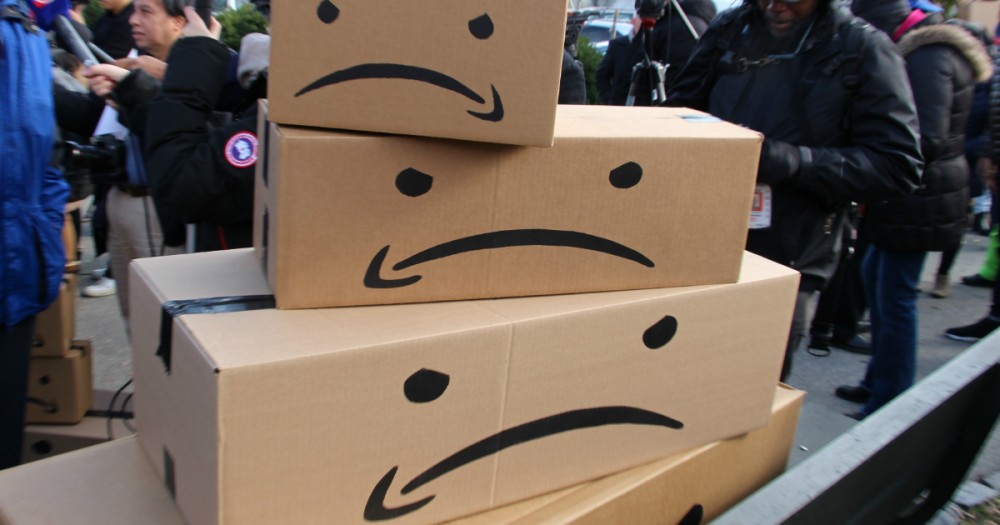Asking the right questions about Amazon HQ2
Economic development is good, except when it’s bad.

Responding to local critics, Amazon recently dropped its plan to build new “HQ2” corporate offices in New York City. After enticing numerous U.S. cities to compete publicly for the honor, the retail and tech giant had announced in November that it would build offices both in New York and in D.C. suburb Arlington, Virginia. The criticism that followed included accusations that the contest’s real purpose was to put the two cities in an advance bidding war, or to collect data from less-powerful cities that never really had a chance, or simply to build offices conveniently located near two of founder Jeff Bezos’s several homes. The whole affair smacked of Amazon’s unprecedented size, clout, and audacity.
Yet the debate in New York also followed more familiar patterns. Politicians, union leaders, and activists complained about the sweetheart deal the city offered Amazon and the lack of any clear benefit for most New Yorkers. What do 25,000 shiny new tech jobs mean to the many residents who lack the skill set to land them? Would they gain anything more useful than gentrification, with its cost-of-living increases and potential displacement?
Supporters countered that what Amazon intends is to spend a bunch of its money erecting buildings and creating jobs. Why wouldn’t a city want this? The economic benefits would reverberate far beyond one new corporate campus in Queens. New high-skilled workers would spend money that would support new lower-skill jobs elsewhere. The city as a whole would be more prosperous. Even some who allowed that the deal’s terms were overly generous to Amazon, such as the New York Times editorial board, maintained that economic development is a straightforwardly good thing.





